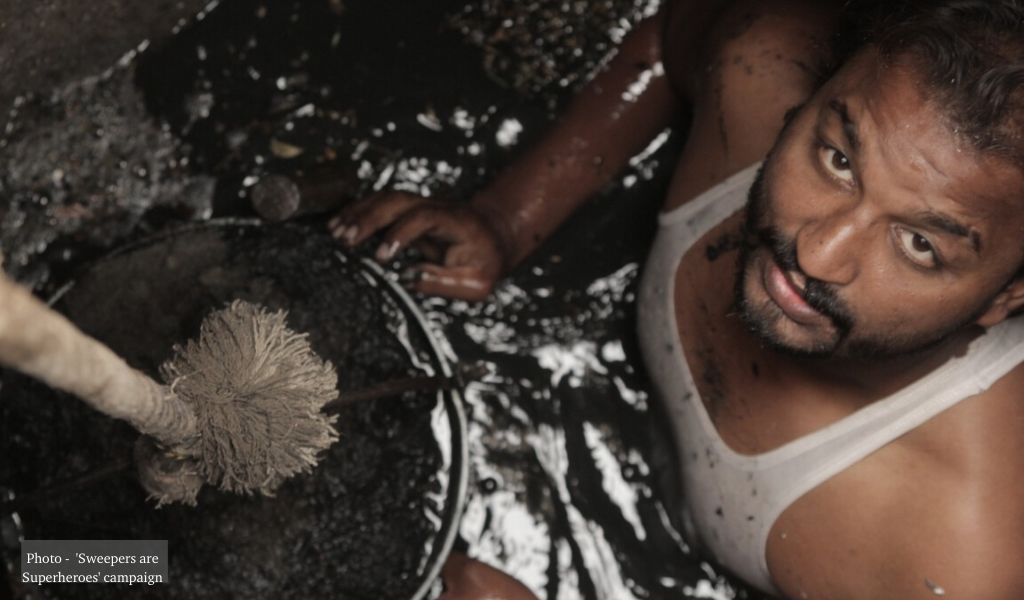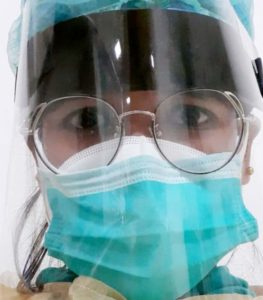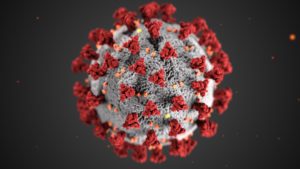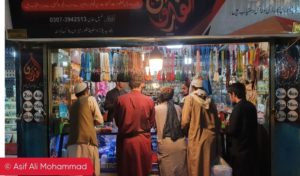Pakistani Christians, who make up about 2% of the population but around 75-80% of sanitation workers, have been on the frontline of the fight against coronavirus. They worked with minimal and inadequate protection, delivering more than their work required (such as providing food) and were kept away from their families, yet they have received no recognition. To add insult to injury, their wages were also delayed. In this blog, journalist Asif Aqeel shares the story of six sanitation workers from Faisalabad, amongst others, as part of the CREID Religious Inequalities and the Impact of Covid-19 series.

Salman a sanitation worker in Pakistan. Credit – Sweepers are Superheroes
Saira Masih was heavily pregnant when her husband Sonny called from work on 21 March. He was being sent to work in a quarantine centre for 156 Muslim Shi’ite pilgrims who’d returned home to Pakistan from a pilgrimage to Iran, already a coronavirus hotspot. He said he would be home in two weeks. The centre, set up by the district Faisalabad government, was staffed by medics, police, civil defence officials and at least six sanitation workers – to clean it. The six shared the surname Masih (from ‘Messiah’) identifying them as Pakistani Christians.
Firdaus, mother of Shakoor, another of the six, takes up the story: “First, they were told they could leave soon after cleaning the centre. But they were tricked into going in there. They ended up being in the centre 24 hours a day for almost a month, bringing food, medicine, soap and shampoo and even making the beds”.
This was because no-else would go close to those quarantined, including the police guarding them. Even the doctor monitoring them would keep his distance.
“Social distancing is nothing new to us (Pakistani Christians)” said Firdaus. “People usually hate the sight of a sanitation worker, let alone coming close, shaking our hand, or eating and drinking with us. But in this difficult time inside the centre, they had to take food from our (sons’) hands”.
Although Pakistani Christians make up about 2% of the population, repeated surveys show they make up, on average, around 75-80% of workers for the companies which manage Pakistan’s cleaning, sanitation and sewerage operations. The Muslim-majority country officially denies that the Hindu caste-based system remains from Partition in 1947, but hundreds of thousands of ‘untouchables’ had converted to Christianity before Pakistan – meaning ‘the land of the Pure’ – was carved out of imperial India. Unofficially, the caste-based ‘untouchable’ stigma remains synonymous with Christians, because over 90% of them come from what was the Dalit caste, the poorest of the poor.
As Firdaus says “Some believe we are born for this dirty sanitation and cleaning work and scornfully call us ‘chuhra’ (a modern equivalent might be ‘toilet cleaner’). Others hate us, believing we do a dirty work; so they keep at a safe distance.”
Neither Shakoor, 25, nor his three brothers had been educated, so they followed their father Yacoob into sanitation work, Firdaus continues. “On Yacoob’s meagre wage, I could barely run the household, let alone send our children – including three girls too – to school.”
Until Yacoob’s death about six months ago, Shakoor had worked with him many feet down inside manholes, shoving long bamboo sticks into putrefied sewage to clear blocked sewer pipelines. Dozens die every year from asphyxiation doing this.
“Two years ago, Shakoor joined Faisalabad Waste Management Company (FWMC) so he could work as a garbage collector, which is comparatively less dangerous and brings a steady income,” continues Firdaus. “My other sons clean floors and collect trash in shopping malls. Shakoor earns a little more than them but still he is a daily wager; the threat of losing his job is there every day.”
“Wherever our men try to go for a job, they are offered sanitation-related work after people know about our religion,” Firdaus told me.
Back to Sonny, who with the other five men was forced to stay working at the quarantine centre, despite Saira’s imminent childbirth. Meantime, her two year old son Honey was vomiting and had diarrhoea.
“I don’t have money to buy food and milk for my family, let alone go to the hospital. I don’t know how I will manage to deliver (my baby) without money, food and support from relatives” she told me.
“(Our husbands) were promised 2,000 Rupees a day extra (c.£1/$1.20) to work there. More than three weeks later, it was Easter and by then neither Sonny’s monthly 20,000 Rupee salary, nor the additional 2,000 R had been paid. I phoned the FWMC about it several times. When this did not work, I had to phone my family for a loan. But everyone was equally devastated due to lockdown.”
The FWMC was created in 2013 as a private company working for the Faisalabad government; hence, the government says it has no responsibility for the six.
“Although sanitation workers do not directly fall under my responsibility, I took as much care of them as possible,” Additional Commissioner Officer Asma Ejaz Cheema told me. She heads up the quarantine centres in her district. “But because it is a national emergency, we have taken unprecedented measures. And even though I had no official responsibility, still I took them Easter cake, fruit and a wonderful lunch on Easter Day”.
About 130 kilometres from Faisalabad, the government turned a Special Education Centre into another quarantine centre in Kasur district. Six police officers were stationed outside. Again, four Christian sanitary workers were sent inside to care for at least one confirmed coronavirus patient, Muhammad Ashraf. On condition of anonymity, the four confirmed to me they had provided food and other essentials to Ashraf until he was discharged on 6 April. Even the lab technician from the nearby District Hospital who came to collect his blood samples was a Christian.
In Quetta, the regional capital of Baluchistan, doctors went on strike after they refused to attend coronavirus patients due to lack of Personal Protection Equipment (PPE). They complained that their masks were of very low quality and utterly incapable of providing adequate protection. However, again Christian nurses and sanitation workers continued to serve in the quarantine centre in Sheikh Zaid Hospital. Again, these confirmed that “most of the patients in this quarantine are of the Hazara ethnic community, Shiites who had visited Iran for pilgrimage”.
On condition of anonymity, these workers told me “From a distance, doctors give us instructions for their treatment. We have objected more than once. We’re here on the frontline, fighting without adequate protection, but we’re not complaining.”
Back in the quarantine centre set up in the University of Agriculture in Faisalabad, about 200 kilometres from Lahore, the six sanitation workers were all tested for coronavirus on 18 April. Sonny and four others – Nabil, Naveed, Asif and Imran Masih – tested negative and were allowed to return home; Shakoor tested positive. He was finally released five days later, more than a month after he had left home for a day’s work. He’s been given 20 days off so that if he does have coronavirus, he won’t spread it.
“We all fought (the virus) bravely, but our services need to be recognised. And I want to be put on a regular work contract. We sanitation workers are among the frontline soldiers. I want our service to be recognised alongside that of doctors and nurses”.
There is a campaign to support Pakistani ‘sweepers’ entitled “Sweepers are Superheroes” @Sewperheroes. It campaigns for better working conditions for them, especially PPE during the time of Covid-19 prevalence.



